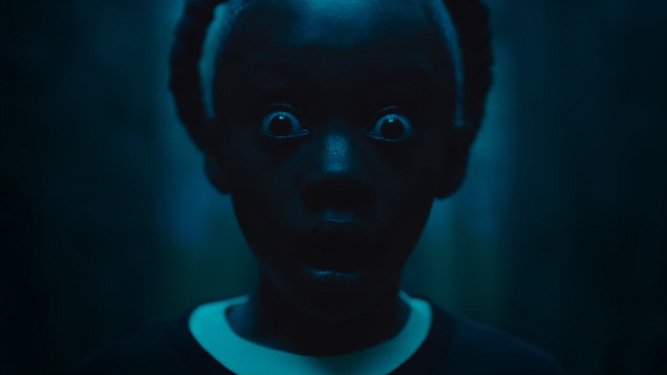
Jordan Peele has become known as a Master of Horror over the past couple years, not in the least because Get Out — his directorial debut — was one of the most innovative horror films to come out this century. It masterfully combined cultural satire and dread, setting up space where viewers can simultaneously laugh awkwardly, cower in fear, and scream in delight as the events unfolded.
This has only become truer since the release of his follow-up Us, which debuted last week to critical acclaim, some hefty box office receipts, and tons of discussion on social media.
There are a few reasons to see Us. It's not only a great way to understand more of what Peele offers as a filmmaker, but it's also a fantastic preview of what's to come in his next creation: The Twilight Zone reboot, set to premiere on April 1 on CBS All Access.
Some are a bit torn on what they think of Us overall — whether it lives up to the standards set by Get Out or if it's more of a messy affair. Personally, I think it's more ambitious than Get Out, which managed to create an over-the-top scenario that was still established firmly in our reality. It may present a world where white scientists can transfer the consciousness of themselves into black bodies (spoilers for a two-year-old movie?), but something about it still felt grounded, or at least easier to absorb.
Us, on the other hand, is absurd. Without getting into spoiler territory, it's impossible to interpret Us literally since most of the real-world elements fall apart around 30 minutes in; then it becomes a free-for-all. It's drenched in metaphor and allegory, which opens it up to multiple interpretations about concepts surrounding identity, socio-economic disparity, privilege, the American Dream, and even post-1980s cynicism. I get how it might be overwhelming for some.
Still, Us is important as a sum of its parts. It represents another piece in a long history of horror as a commentary on cultural and personal anxieties (Hereditary, Green Room, the Babadook, It Follows and the Purge series are just some recent examples, but this goes back centuries, far beyond just Frankenstein and Dracula). It's a full speculative concept: what would happen if you met your doppelgänger? Then it evolves from there, becoming less about the initial concept and more about how an artist in 2019 would interpret such a concept.
Doesn't that make it just like a full-length Twilight Zone episode?
The latest updates, reviews and unmissable series to watch and more!
We don't know much about the kinds of stories Peele's Twilight Zone reboot will tackle. We know that there's an homage to the famous "Nightmare at 20,000 Feet" called appropriately, " Nightmare at 30,000 Feet ." There's also an episode called " The Comedian " where Kumail Nanjiani makes a deal with what is surely the Devil. There's also one where Jacob Tremblay becomes President, which surely won't have any political connotations at all. We also know that Peele is an executive producer and the host, so writing duties will fall elsewhere.
Regardless of what stories the Twilight Zone will tell, we do know the kinds of stories we'll get. The series has always been about cultural attitudes, whether you're talking about the one from the 1950s or the one from the 80s. Underneath stories about aliens, demons, and magic are tales about anxieties from each of those eras. The famous "Monsters are Due on Maple Street" is about the Cold War and paranoia; "The Eye of the Beholder" is about pressure and beauty standards; "Mirror Image." which is about a woman who comes into contact with her own doppelgänger who seeks to replace her (sound familiar?) is also about Communism and the fear of your neighbor.
This is definitely something that Peele understands, as he's expressed during interviews.
"It points out the ugliness and flaws of humanity," Peele said about "Monsters are Due on Maple Street" during a talk in LA this week . "That's what I like to do with my stories. The real monsters are within us. When people get together we are the greatest monster we've ever known."
The Twilight Zone's themes will certainly look different in 2019 (as they did with the 80s remake and the early 2000s revival), but in all, its purpose is the same. Peele has used horror to expertly craft stories about identity, blackness, and societal disparities for the past few years. Get Out and Us showed us that a genre generally thought of as pulpy and niche can tell fascinating stories. If those films are any indication, The Twilight Zone is going to be exactly what we want it to be.
The Twilight Zone premieres April 1 on CBS All Access.

"It's Us."
An amazing sophomore effort
If you were a fan of "Get Out," you'll almost certainly want to check out Jordan Peele's second film Us. What would happen if you were all of a sudden face-to-face with your doppelgangers? It only gets crazier and more horrifying from there.

Get spooked
Great mix of originals and classics
CBS All Access has a great mix of originals and classics and that includes Star Trek Discovery and, most importantly, the Twilight Zone. That includes both the reboot from Jordan Peele and the original from Rod Serling.
